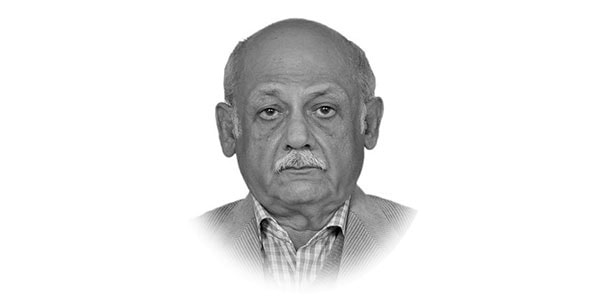Pakistan ungovernable country
POLITICAL social and economic problems faced by the country are increasing day by day. The government of the day seems incapable of controlling the rising prices of essential commodities and to check the frightening slide of the rupee against the dollar.
Problems of governance seem to be the same as they were in the days of the PTI due and their utopian dream of Riasaat-i-Madina and a naya Pakistan.
Pakistan’s political history has been one of turbulence, discord confusion and crises but today the basic challenge of governance appears to be more imposing difficult and dominant because of a legacy of a number of factors and the increase in polarization of society never witnessed before in our turbulent history.
The PTI government was removed by a very democratic legal and conational process of a vote of no-confidence but the former rulers of the country managed to sow seeds of discord and disharmony in the country.
Never in the history of this country have our people been more divided by their political preferences and the very rigid stance of the former rulers has sharpened the polarization to dangerous levels.
This dangerous political atmosphere has increased tension and made any political accommodation almost impossible.
The political rivalry between the PTI and the rest of the opposition parties has resulted in a National Assembly without any Opposition and all laws enacted by this parliament do not have the benefit of any consensus.
Differences in the political parties now appear impossible to bridge and as such no solutions to political disputes are possible.
The PTI leadership has very adroitly managed to paralyze the system and is harping on the tune of early elections and this dogmatic approach of the PTI has resulted in problems of governance and a severe shock to the democratic system in place.
Almost all state institutions are now on the receiving end of partisan attacks in the raging political battle.
Constitutional institutions like the Election Commission, Establishment, or Judiciary get praised to high heavens if their decisions are in favour of a certain political party and if the opposite happens they are severely criticized or even abused for being biased.
Imran Khan has not ceased questioning the impartiality and fairness of the Judiciary and the Election Commission and the brigade of PTI social media warriors is hell bent on trolling these state institutions.
He has continued to pressurize the Establishment by accusing them of not doing anything to help him against his trumped up theory of an international conspiracy to remove him and this is nothing but a crude pressure tactic to force the Establishment to change their tactic of neutrality in the political arena of the country.
The Chairman PTI has categorically rejected all explanations and clarifications by the DG ISPR that they have not been able to find any proof of an international conspiracy.
This bitter feud with the powerful military establishment has sown the seeds of a deep mistrust and is creating cynicism along with divisions and schisms in society.
The PTI Chairman simply refuses to realize that embroiling state institutions in such controversies can have disastrous effects for the country and increases the already difficult challenges of governance.
Rule of democracy is to have faith and trust in the state institutions and this is the only way to ensure their ability to execute state policies.
This admixture of polarized politics and economic meltdown is taking Pakistan nearer and nearer to becoming a state incapable of governing itself.
The most common and obvious reason for making the country ungovernable are the economic policies adopted by successive governments.
Almost all governments since the 1980s ruled with extreme fiscal irresponsibility and managed to leave the economy in a poorer state for any successor government to deal with.
Basic economic problems were never attended to resulting in repeated financial crisis that has now become a threat to national stability.
During the last thirty five years enough domestic resources were never mobilized and low level of saving and investment along with rampant corruption at all levels resulted in all governments facing huge deficits in national expenditure and on the country’s external account.
These two deficits budget and balance of payments were made up by printing more currency notes and the inflow of money from abroad by borrowing and the remittances from our overseas Pakistanis.
Pakistan today is facing the worst financial crisis in its political life. Foreign exchange reserves are dangerously depleted.
Inflation is rising, the rupee is weakening, power shortage is increasing, prices are spiraling and the common man is in the throes of an unbearable burden and an IMF bailout is being negotiated to avoid the humiliation of a default.
The Covid-19 pandemic and some global economic factors such as increasing international oil prices have added to the misery of our economic woes but the main factor is poor economic management by our ruling elite concerned with preserving their own power than acting in greater public interest.
—The writer is Professor of History, based in Islamabad.










